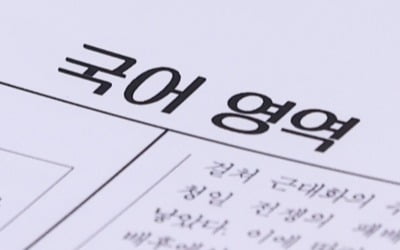>>> 전기대학 본고사 시험문제 <<<...서울대학 영어 < 4 >
-
기사 스크랩
-
공유
-
댓글
-
클린뷰
-
프린트
VI. 글 (A) 와 글 (B)를 읽고 물음에 답하라.
(A)
If somebody says to me, "I''ll ring you up," he''s taking too much for
granted. He is proposing to attempt (a) the impossible. So I have to
---------------
say, "I''m afraid you can''t. You see, I don''t have a telephone."
The usual reaction is astonishment: "How terribly inconvenient! How
can you(b)______ a telephone?" I find myself being stared at as an
eccentric, especially when somebody adds, "You can ring me up the,"
and I reply, "Perhaps, but I''m more likely to write to you."
I don''t have a telephone not only because I find it unnecessary but
also because I find it inconvenient. It may create unnecessary
suspense and anxiety, as for example when you wait for an expected
call that doesn''t come; or irritating delay, when you keep ringing a
number that is always engaged.
(B)
When I was young,m it didn''t disturb me that the radio took five
minutes to warm up. Nor was I particularly bothered that I had to talk
to an operator to place a telephone call. I don''t recall feeling
annoyed that a flight from New York to Europe took 22 hours. I believe
that I was perfectly satisfied with my black-and-white TV, my dial
telephone, and even my electric typewriter.
Today, though, I''m (c)l_____ tolerant. I can''t stand it when the
remote controller gets buried under a pile of papers on my desk, and I
have to get out of my chair to turn on the television. I can''t stand
it when my flight to Los Angeles is delayed by half an hour or when
the fax machine in my district office is busy. what I never dreamed of
yesterday, I can''t (d)____ _____ today.
1. (a)의 구체적인 뜻을 우리말 25자 이내로 풀이하라.(4점)
2. (b)와 (d)에 공통으로 들어 갈 두 낱말로 된 영어 어구를 쓰라.(3점)
3. 문맥에 맞게 (c)에 주어진 글자로 시작하는 영어 낱말 하나를
쓰라.(3점)
4. "Invention often seems to be the mother of necessity, not the other
way round."라는 말로 마무리할 수 있는 글은 (A),(B),(A)와(B) 셋중 어느
것인지 쓰라. (3점)
(A)
If somebody says to me, "I''ll ring you up," he''s taking too much for
granted. He is proposing to attempt (a) the impossible. So I have to
---------------
say, "I''m afraid you can''t. You see, I don''t have a telephone."
The usual reaction is astonishment: "How terribly inconvenient! How
can you(b)______ a telephone?" I find myself being stared at as an
eccentric, especially when somebody adds, "You can ring me up the,"
and I reply, "Perhaps, but I''m more likely to write to you."
I don''t have a telephone not only because I find it unnecessary but
also because I find it inconvenient. It may create unnecessary
suspense and anxiety, as for example when you wait for an expected
call that doesn''t come; or irritating delay, when you keep ringing a
number that is always engaged.
(B)
When I was young,m it didn''t disturb me that the radio took five
minutes to warm up. Nor was I particularly bothered that I had to talk
to an operator to place a telephone call. I don''t recall feeling
annoyed that a flight from New York to Europe took 22 hours. I believe
that I was perfectly satisfied with my black-and-white TV, my dial
telephone, and even my electric typewriter.
Today, though, I''m (c)l_____ tolerant. I can''t stand it when the
remote controller gets buried under a pile of papers on my desk, and I
have to get out of my chair to turn on the television. I can''t stand
it when my flight to Los Angeles is delayed by half an hour or when
the fax machine in my district office is busy. what I never dreamed of
yesterday, I can''t (d)____ _____ today.
1. (a)의 구체적인 뜻을 우리말 25자 이내로 풀이하라.(4점)
2. (b)와 (d)에 공통으로 들어 갈 두 낱말로 된 영어 어구를 쓰라.(3점)
3. 문맥에 맞게 (c)에 주어진 글자로 시작하는 영어 낱말 하나를
쓰라.(3점)
4. "Invention often seems to be the mother of necessity, not the other
way round."라는 말로 마무리할 수 있는 글은 (A),(B),(A)와(B) 셋중 어느
것인지 쓰라. (3점)


